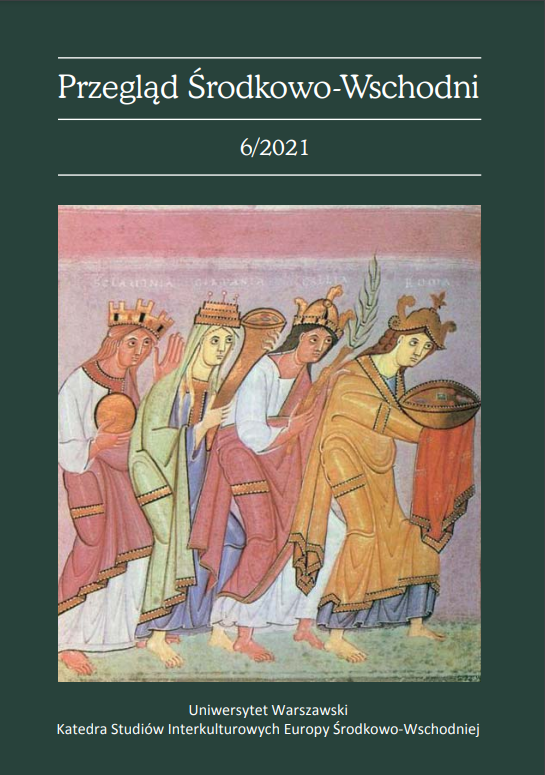Narodowe rady wiejskie w kontekście polityki narodowej BSRS 1924–1939 (na przykładzie Łotyszy i Polaków)
National village councils in the context of the national policy of the BSSR 1924–1939 (using the example of Latvians and Poles)
Author(s): Maxim KaraliouSubject(s): History
Published by: Uniwersytet Warszawski - Katedra Studiów Interkulturowych Europy Środkowo-Wschodniej
Keywords: BSSR; national politics; national village councils; Latvian; Poles
Summary/Abstract: The article is devoted to the consideration of such a phenomenon in the nationalstate construction of the USSR of the interwar period as the national village council.The author on the example of Latvians and Poles who lived on the territory of SovietBelarus shows the peculiarities of the organization and existence of this form ofnational autonomy. The main positive aspects of such an arrangement for Latvians andPoles are distinguished (primarily the development of national culture and education,as well as the possibility of economic cooperation). Organizational problems inthe implementation of this area of the national policy of the BSSR were noted. Theconclusion is made about the diff erence in the vision of the goals and results of theexistence of national village councils by peasants (Latvian and Poles) and the Bolshevikleadership. Ultimately this led to a change in the national policy of the USSR in the1930s. The negative perception of collectivization by the Latvian and Polish peasantsbecame the reason for the use of state repressions especially during the years of theGreat Terror. As a result the ideas of creating national village councils was declaredwrecking and till 1939 all of national village councils were eliminated.
Journal: Przegląd Środkowo-Wschodni
- Issue Year: 6/2021
- Issue No: 6
- Page Range: 123-145
- Page Count: 23
- Language: Polish

